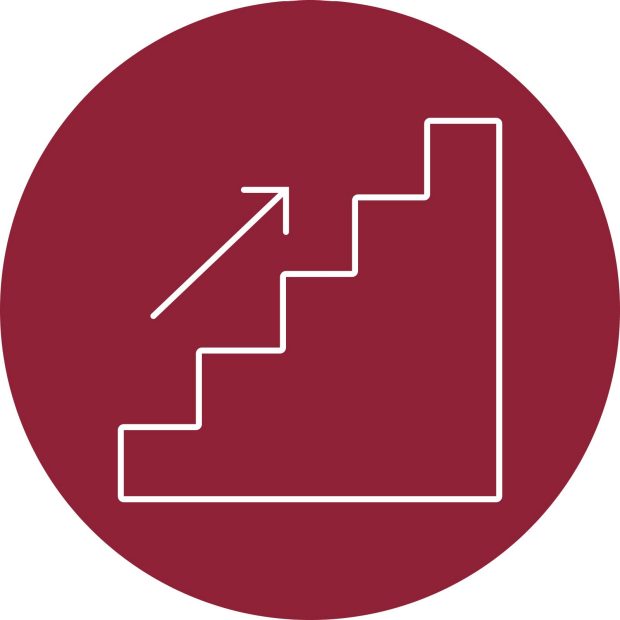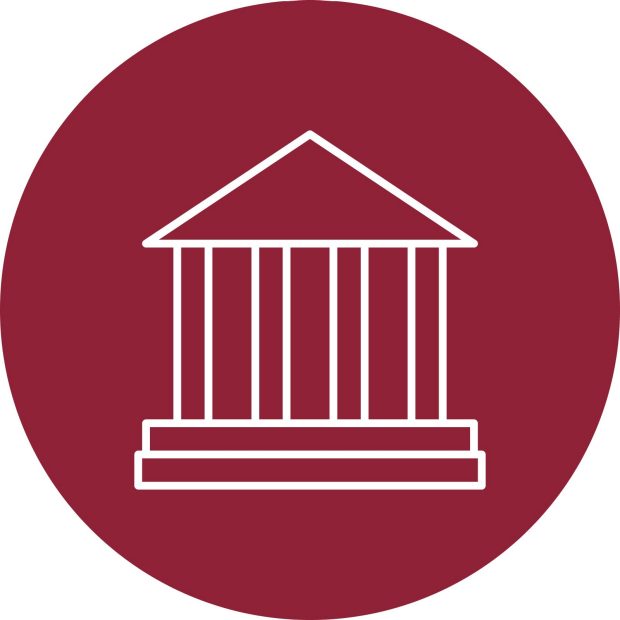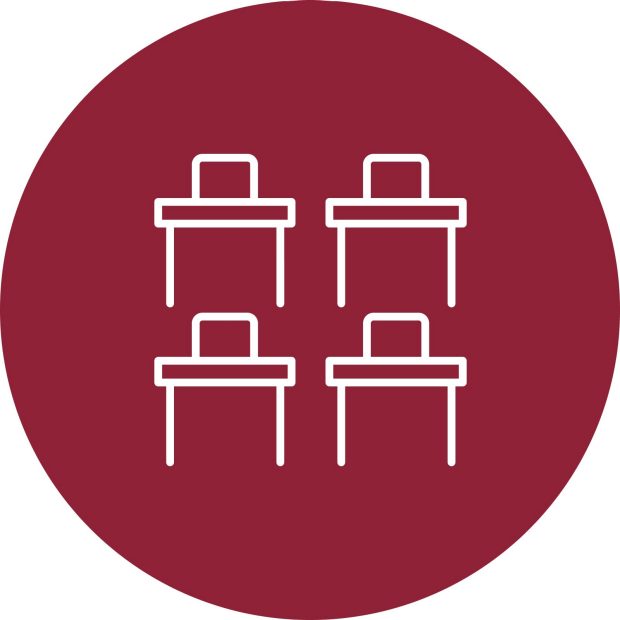Master of Supply Chain Management (MSCM)
The John Molson advantage
Why the Master of Supply Chain Management program?

APPLIED RESEARCH
Get a thorough grounding in research analytics and be ready for a future path as a PhD student, as a practitioner researcher, or as an analyst.

CAREER SUPPORT
Our dedicated Career Management Services team helps you envision and realize your post-graduation objectives.

DIVERSE ENVIRONMENT
Our program unites cutting-edge faculty working in a variety of specializations with students from diverse academic, professional and cultural backgrounds.

VIBRANT STUDENT COMMUNITY
Get involved outside the classroom in a multitude of exciting student-led clubs, associations and events.

AGRE
Present your research-in-progress at the Annual Graduate Research Exposition to judges from academia and the local business community.

PRACTICAL EXPERIENCE
Produce useful and relevant business research while complementing in-class learning with internship and experiential opportunities.

EXPERT FACULTY
Our faculty members constantly push the boundaries of business research, maintaining close links with the business community and publishing widely in peer-reviewed journals.

SMALL CLASS SIZES
Each class makes for a rich and engaging experience, helping you establish close relationships within a specialized network.
Globalization and advances in information technologies have led to an extensive array of new business perspectives and applications. On one hand, globalization has resulted in conducting business across boundaries and geographies. On the other hand, advances in information and web based technologies have facilitated the coordination and close integration of various stakeholders along supply chains. As a result, a fundamental shift in management has occurred over the last two decades from managing a ‘unit environment’ to managing a ‘chain environment’.
Supply Chain Management (SCM) is an interdisciplinary, integrated approach to the management of material, information and cash flows along supply chains. It involves the disciplines of supply chain operations management, marketing, finance, management, information technology management, business intelligence, and industrial engineering.
The John Molson Master of Supply Chain Management is designed for those who wish to develop an advanced understanding of key theoretical concepts and strategies in SCM. This graduate business program is research-based, requiring students to complete a thesis during the second half of the program. The program helps to sharpen the skills and expertise needed to manage large research projects. Those who wish to move on to studies at the doctoral level will find that the program provides a solid theoretical base for advanced research and consulting work. The tools, techniques and approaches employed educate and challenge students to be critical thinkers, problem identifiers and solvers using scientific approaches, where the solutions proposed bear both academic and business merit.
Canadian students are able to pursue the program on a full-time or part-time basis, while all students are offered the room to refine their area of expertise within the field of SCM.
The John Molson Master of Supply Chain Management exposes students to the interdisciplinary nature of SCM while placing a greater emphasis on supply chain operations management. Rather than taking a logistics-based perspective of SCM that mostly focuses on managing material flow, the program addresses the acute need to effectively manage the flow of material, information and money along supply chains. Thus, the program aims to provide a broader understanding of the role of supply chain management in organizations and its interactions with various business functions.
The course offering is loyal to the integrated spirit of SCM. As such, our students learn how to:
- understand the interdisciplinary nature of SCM;
- analyze and design supply chains using appropriate quantitative and qualitative tools, techniques and approaches;
- develop quantitative modeling skills in managing supply chains and using various software in this respect;
- develop research skills;
- effectively convey findings and visually present data;
- generate solutions to supply chain problems that have academic and business merit.
Students with non-SCM and non-industrial engineering undergraduate degrees / backgrounds may be required to complete a maximum of three courses prior to joining the program.
Flexibility to develop your research interests and ideas
The program has been deliberately designed to broadly encompass the field of SCM while allowing students to refine their particular area of interest within the field. Although you need to have a good idea of what you might like to research in the program, you do not need to have a thesis proposal or a thesis supervisor in order to apply. Our flexible program gives you the freedom to develop your research interests and ideas.
Producing a thesis
The thesis component of John Molson’s research-based Masters builds upon what is learned during the courses component in the first half of the program. The thesis is an in-depth, academic paper that provides candidates with the opportunity to explore and investigate their particular area of interest, all while contributing to knowledge in that field. Research methods are various and can be cross-sectional, longitudinal, based on case studies or experimental in design. It measures data gathered on survey questionnaires, interviews, archives and field observation.
Managing a thesis project is an excellent way for candidates to demonstrate their passion and to hone their specialization in preparation for either PhD studies or careers as industry experts in their respective fields. Producing a thesis helps to develop time management, research and writing, critical thinking, communication and presentation skills. These skills, combined with the passion, dedication and effort required to undertake a thesis project, are highly sought after by top employers, who may also be interested in the research and findings generated.
Developing practical research skills
Through the thesis, each candidate takes a deep-dive into their particular thesis topic. By building on a solid theoretical foundation, they stand to produce the type of relevant and practical research that is becoming increasingly necessary in business, government, and industry.
We want our graduate to apply relevant research findings to solve organizational problems. We aim to produce graduates that will respond to today’s need for specialists who understand the latest trends and developments in SCM in a post-pandemic business landscape.
John Molson’s Master of Supply Chain Management has partnered with GradProSkills to incorporate professional development workshops as a non-credited degree requirement. These workshops align with the program’s learning objectives to optimize the students’ graduate school experience and equip them to realize their professional and academic goals. Some examples may include effective reading and writing strategies, business research essentials, presentation skills, project management fundamentals, French conversation group, crafting strong thesis statements and introductions, how to prepare data for publication, leadership development, Mitacs training, student health, and many more!
Career choices
The theoretical and practical knowledge acquired during the program motivates and prepares students to move on to a PhD program. For those graduates who want to join the business world, the career opportunities are varied and vast. Some examples include positions as:
- supply chain inventory / business / development / planning / risk / systems analyst;
- supply chain / distribution coordinator;
- transportation route and crew scheduler;
- sourcing / procurement / logistics / warehouse manager;
- consultant,
in sectors such as:
- manufacturing: aerospace, automotive, forest products, pharmaceuticals, consumer durables;
- service: retail, health care, logistics.
The SCM field has a more significant tie to the private sector, both in manufacturing and services, however, applications of SCM in health care, transportation and port operations are important examples relevant to the public sector.
Furthermore, graduates can join North American professional orders such as the:
- Supply Chain & Logistics Association of Canada;
- Purchasing Management Association of Canada;
- Institute of Industrial Engineers;
- Institute for Operations Research and the Management Sciences;
- Production and Operations Management Society;
- Council of Supply Chain Professionals.


